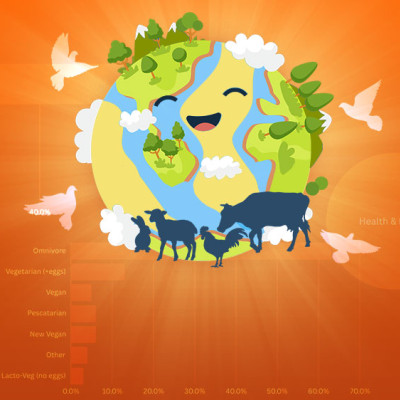Financial sector urged to shift investment from animal ag to plant-based foods
Published 21 June 2023
A new report shows that Denmark’s financial sector lacks the objectives, knowledge, and ambition to invest in sustainable foods while it continues to support animal agriculture.

See the report: The Role of the Financial Sector in the Transition towards a More Plant-Based Food System
“It seems like many banks fail to acknowledge the seriousness and the scientific fact that we need to reduce intensive animal production”
The study, which benchmarked 27 of the largest banks in Denmark, says that the sector is not financing the plant-based industry or the agricultural production of plant-derived crops enough, neglecting the potential of plant-based diets to address sustainability in the food system.
Recently released by the Vegetarian Society of Denmark, Greenpeace, Green Transition Denmark, and Animal Protection Denmark, the report is said to be the most significant review of Danish banks’ actions regarding food production.
A thread to the future
“It seems like many banks fail to acknowledge the seriousness and the scientific fact that we need to reduce intensive animal production. The sector needs to wake up and realize that it needs to make massive investments to transition to climate and environmentally friendly plant-based food production in Denmark,” said Rune-Christoffer Dragsdahl, the secretary general of the Vegetarian Society of Denmark.
According to the report, to achieve climate targets, the food system needs to transition from animal-dominant, using most crops to feed farm animals, to plant-based food for humans instead. The Danish Climate Council, an independent adviser to Denmark’s government, recently recommended reducing meat consumption to help the country meet its climate goals.
“It is about time for Danish banks to wake up to the reality that we are actually in the midst of a global climate and biodiversity crisis. Agriculture and food production are on a collision course with our own livelihood, and banks need to understand that continued loans and investments in industrial mass production of meat and milk, which we need to move away from, pose both a gigantic financial risk and a threat to our future and our children’s future,” commented Kristine Clement, campaign manager for Agriculture, Forestry, and Nature at Greenpeace Denmark.

Not only “quick-fixes”
The report includes a chart outlining the 27 banks’ actions or inactions in climate and environmentally-friendly initiatives. It provides examples of positive initiatives and offers ten proposals for practices and investments for future-proof food production.
Banks’ financing and advisory services are crucial to transforming agriculture and food production. Therefore, financial institutions must set specific goals to contribute to transforming our society, fiercely argues the report.
“If we are to succeed in securing the future of our agriculture, it is problematic to invest solely in technological quick-fixes that do not truly address the challenges we are facing,” added Dragsdahl, referring to the support that technological innovations in feed efficiency and manure management (mentioned in the report) are getting from banks as a solution for the climate crisis.
Original Article > Vegconomist
Recent News
-

Dogs Thrive on Vegan Diets, Demonstrates the Most Comprehensive Study So Far
The longest, most comprehensive peer-reviewed study so far has demonstrated that dogs fed nutritionally-sound vegan diets maintain health outcomes as well as dogs fed meat.
-

Vegan YouTube Channels – Our Top Picks
Vegan Easy’s YouTube channel recommendations to help you on your vegan journey.
-

Pamela Anderson’s New Vegan Cookbook: A Culinary Journey of Love and Compassion
Pamela Anderson, the iconic Hollywood actress and passionate animal rights advocate, is set to captivate the culinary world with her upcoming vegan cookbook titled "I Love You: Recipes from the Heart."
-

January 2024 Vegan Easy Challenge Recap
People from around the world began their 2024 with a peaceful start by taking the 30-day Vegan Easy Challenge.
-

Discover the Culinary Delights of Byron Bay’s Newest Plant-Based Cooking School
Learn the sublime art of plant-based cuisine at Katie White's new cooking school in Byron Bay
-

Beyond Romance: Encouraging Vegan Themes and Animal Protection in the Growing World of K-Dramas
The global popularity of K-dramas and growing interest in veganism present a unique opportunity to foster positive change
Leave a Comment